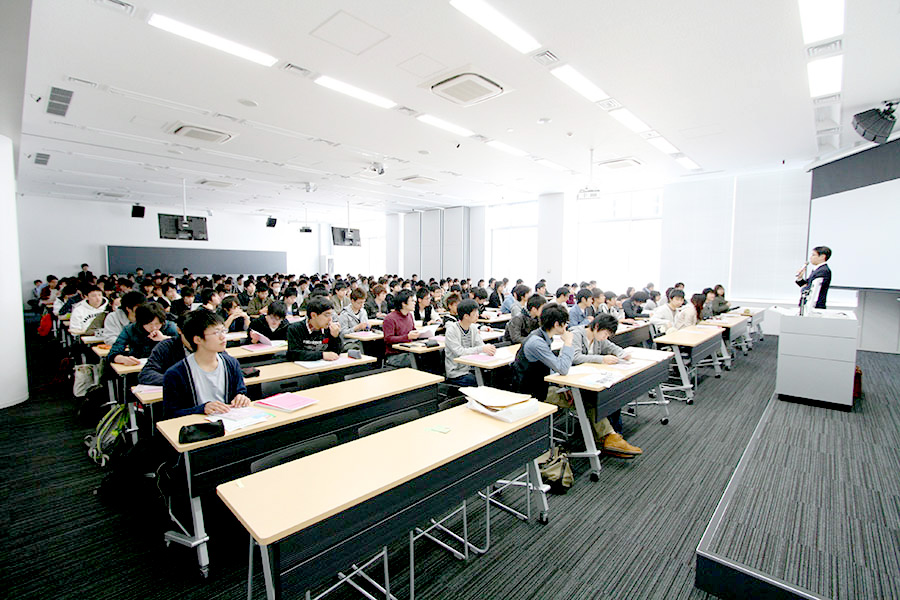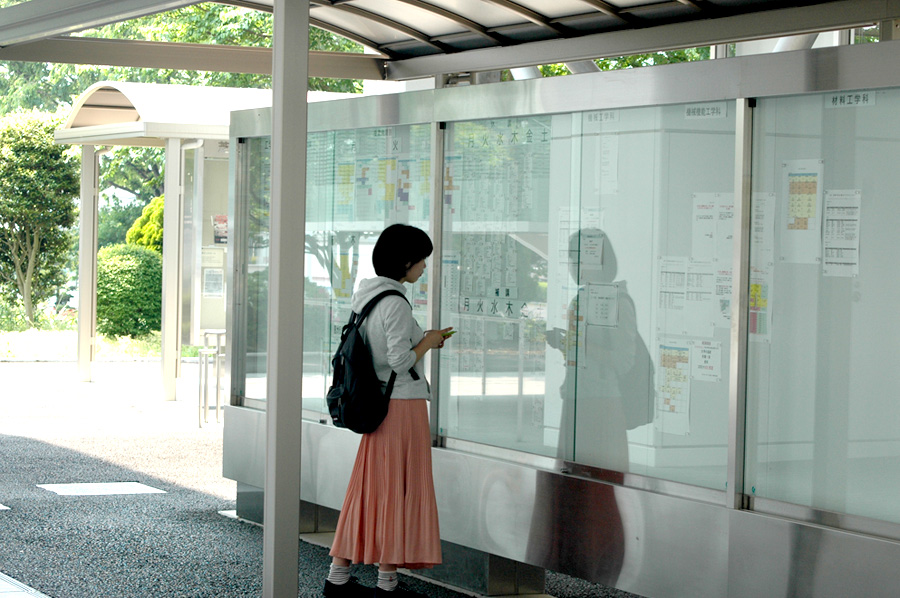Campus life information
Three Things to Decide when Studying at a Japanese University

Studying abroad is an exciting adventure, especially in a country far away with a very different culture, and is a unique opportunity which you will remember for the rest of your life. To make your intrepid journey into the unknown your best friend will be preparation – so if you are thinking about studying in Japan then you have to start looking into what study in Japan is like! For example, it is good to know what the cost of study is in Japan, whether you can also work while studying in Japan, and of course what life is like around your stimulating Japanese school schedule . Answering just a few of these questions will make your once-in-a-lifetime trip just that much more memorable.
Once you have formed an impression of what studying in Japan would be like, and what your daily routine may consist of, you can then start thinking about the more practical aspects of living abroad. For example, you should also research about Japanese culture and language so that you can get a feel for the country, and possibly try out some of your new language skills with the new friends you will make. Once you are in Japan you will discover an absolute treasure trove of cultural activities that you would never have imagined that you might experience!
How many days a week do you need to attend school in Japan?

Your new life in Japan will revolve around your school schedule, so it is really important to understand just how exactly universities work in Japan. According to a survey by the Benesse Institute of Education students on average went to school five days a week for a total of around 29 hours. At a university like the Shibaura Institute of Technology you will experience a mixture of class time, but also personal learning time, your class schedule will of course depend on the courses you take however. In some cases you might have a class which lasts up to two hours, but this will allow you to really study a subject in depth which you might not achieve in a short class like those in the US which might only last less than an hour. Class times may come as a surprise as it is possible to have a class in the evening and finish at 8.20pm, this might be a bit surprising for a student used to finishing around 4.30pm! However, you will gain important life skills in organizing your daily schedule and studying like a real Japanese student.
Studying in Japan also requires a different mindset to what you may be used to, lectures tend to be focused around the professor with students mainly just listening – so a lot of information can be imparted in just one class. Outside of classes Japanese students tend to live alone in an apartment, a far cry from dormitories and shared apartments in the US and Europe, though Shibaura does have a dormitory at their Omiya Campus for Japanese and international students. Wherever you choose to live though, it is a great idea to try and connect with local people.
Wherever you stay you should try and keep close to the university – even if it is just for the fact that classes can start early and finish quite late. In addition, you will be spending a lot of time at the library, which is open until between 9.30 and 10pm depending on which campus you are on. However, again it might come as a shock that libraries in Japan don’t tend to be open 24 hours, or are always open on a Sunday – so you can’t expect to be able to work on an urgent essay all night or all weekend. These kinds of restrictions tend to make you far more organized, you have to use your time more efficiently!
Outside of classes there are a ton of extracurricular activities which you can join, which range from clubs and circles organized by students to international events arranged by the university. It is important to remember the distinction between a club and a circle, a club will be a team sport where everyone will practice hard while in stark contrast a circle is more of a social event centered on something that everyone in the circle enjoys doing. Joining either one is a brilliant way to make Japanese friends, and not only learn about Japanese culture through them but also show people about your own culture.
How much is tuition at a Japanese university?

Once you have decided whether studying in Japan, and the Japanese school schedule system, is for you, then the next big question is “how much will it all cost?” For an institution like Shibaura, besides annual tuition fees, there is an examination fee of ¥10,000, an enrollment fee of ¥30,000 and a course fee of ¥12,000 per unit which have to be kept in mind.
The annual tuition fees vary by year, but you are looking at a cost of ¥1.6 million for the first year and between ¥1.3 million and ¥1.5 million for subsequent years. These prices are fairly typical for a Japanese university and can be seen as a good ballpark figure for costs in general.
Accommodation costs will vary depending on where your apartment is, as Shibaura is in central Tokyo prices can go from cheap to very expensive, it is entirely dependent on where you wish to stay, how old, or new, the apartment is, and whether it is a big or small apartment. Renting privately can be quite complicated but there are a lot of online guides which can help you out.
There are a lot of scholarships for studying in Japan, the eligibility of which depend on nationality and course, but it is definitely worth investigating whether there is a scholarship you can apply for. There are even scholarships offered by the Japanese government as part of their plan to recruit 300,000 international students to study in Japan. So it is a really good idea to check this out as well.
In some cases there are scholarships available through the university you choose to study at, but this can vary from course to course as well as have other restrictions. However, it is recommended that you confirm whether there are any scholarships available directly with the university and department you wish to study at.
Is it possible to work and study?

As a student, once you have your visa, you do not automatically have the right to take up paid employment. Student visas are issued on the understanding that you are coming to Japan to study, not to work. As such, if you want to work then you need to seek permission to do so, and you can’t do that until you have arrived.
You will need to have secured an offer of part time employment, and then you will need to go to your local immigration office with the following documentation:
- Application form for Permission to Engage in Activity Other than that Permitted by the Status of Residence Previously Granted (this can be picked up at the Immigration Bureau).
- A document explaining the details of the work you wish to do (for example a letter from your prospective employer detailing the work you will do and the shift plan).
- Your residence card (this will need to have your address recorded on the back).
- Your passport and Certificate of Eligibility for Residence Status
- Additional identification documents (for example, your student ID card).
It is essential that you have registered your address with your local town hall first, only they can record your address on the back of your residence card. It is important to note that your residence card is very important for life in Japan, so don’t lose it!
The application itself is free, but if you are going to a busy immigration office like the Tokyo Regional Immigration Bureau in Shinagawa, then keep in mind that queues form up from quite early in the morning, and it can be a very long wait if you go around midday or later.
If your application is accepted then you will get a stamp in a blank part on the back of your residence card, and you will be allowed to work up to 28 hours a week during term time, and up to 8 hours a day during school holidays. These hours are total amounts, so if you have two jobs then you would only be able to work 14 hours in each job.
There are also restrictions on the type of employment you are allowed to do, so for example it is not permitted to work in a bar, or anywhere involving adult entertainment including video game arcades or pachinko parlors.
Please note that even if you don’t plan to work it is still worthwhile to get the work permit as if you want to get involved in cultural activities, which may include a small payment, then you still need a work permit. It is also not permitted to work before enrolling at your university, or after enrollment has finished.
Furthermore, whether you get involved with cultural activities or get a part-time job, you will get to meet many local people, experience Japanese culture first-hand and discover new things about yourself. Studying in Japan is something that you will never forget, and whether you stay six months, a year or longer you will find that you have broadened your horizons and got to grips with an extremely rich, yet different, culture. We are sure that your time in Japan, studying at a university, will be one that will leave a deep impression on you.